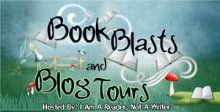“How are you? How is everyone?” I replied, hoping to hear only good news.
“We’re all fine. Listen, Sue, we would like to stop by this weekend, if it’s OK with you and Bobby.”
“I know we’re free on Sunday, how about brunch?” I suggested.
“Sunday is good for us. I’ll be coming with the boys, if that’s OK with you.” “The boys” were Marian’s sons Marc and Ira. Marian’s wife Carol had difficulty sitting in the car for long trips, making her visits infrequent.
“Great,” I answered, trying to ease the discomfort I heard in Marian’s short, fact-filled sentences. He was always afraid of imposing but of course we would welcome his sons. The fact that he was living four hours north of my home on Long Island made “downstate” visits rare. I planned the menu before the receiver hit its cradle. We would have the usual: bagels, lox, and cream cheese. I made a mental note to remember bialys, fresh fruit, and a sugarless pie for Marian’s restricted diet.
Thus one sun-drenched afternoon — years after the Cold Spring Harbor sail with Eliane and just months after Ella’s digging focused my genealogical research — Bobby and I sat on our patio having brunch with Marian. In anticipation of the visit I envisioned segueing our conversation yet again into the past, if only for the names of relatives long gone. Little did I know how far Marian had come in his willingness to talk, at last.
Turning to Marian and his forty-something sons — Marc and Ira (named for Marian’s twin Menache and father Israel) — I remember enthusiastically describing how I was trying to create a family tree. The sons would find exploring their ancestry an interesting enterprise, I believed.
As I read my list of the approximate names of Marian’s family, noting where I had blanks alongside relationships, Marian seemed more distracted than usual. I noticed Marc and Ira giving each other secret signs and Bobby closing his eyes, probably fearing I had initiated a painful family exchange. Hoping to engage Marian and assure the others that I needed only names, not painful stories, I mentioned my discovery that my mother-in-law’s name was actually Estera Rachel, and not Elzbieta, or Elsa, as Marian called her. Marian, whose eyes lifted to meet mine, smiled. “That’s correct,” he acknowledged in his soft deep voice. “Elzbieta was not a Jewish name. Elsa took that name; she didn’t use her given name.”
Marian, sitting at the head of the table and dressed, as usual, in a pressed shirt, khakis, and sports jacket, could provide only a few of the names I needed. He could not remember his grandmother’s first name, although he did remember her last name — she was “Grandma Wilde.” He was limited by what he remembered and what, as a child, he had actually known. Nonetheless, through this simple task Marian began the difficult job of selecting memories to share. As he began speaking his family I envisioned him transporting the delicate roots of his family’s tree to a time and place that was safe for all of us to witness.

Have you ever really thought about your ancestors beyond their names and dates of events in their lives? The stories of how they lived their lives can be a source of strength as well as inspiration in your own life.
In this new work of narrative nonfiction, Susan M. Rostan invites us to experience her journey as she seeks to uncover the story of her husband s family, including two courageous but silent survivors of WWII s Warsaw Ghetto: her mother-in-law Elzbieta and Elzbieta s brother, Marian Rosenbloom.
With the passing of Elzbieta, an aging Uncle Marian is the only surviving link to his family s history — the stories of tragic loss and heroic survival — that he and his sister had refused to share with anyone throughout their life. Encouraged by the author and driven by an emerging sense of responsibility to his sister s namesake and future generations, Marian begins a difficult journey into the memories of his childhood in the Warsaw Ghetto and subsequent survival.
As his experiences unfold, he haltingly recalls how he managed to escape the Ghetto and survive, thanks to his courageous rescuers. Out of his remembrances, the author nurtures not only the story of her husband s family history, but finds herself immersed in an insistent desire to honor Marian s rescuers. Through her poignant and compelling narrative, she revives Elzbieta s legacy of hope, caring, and laughter for all of us to share.
Buy Now @ Amazon
Genre – Creative Nonfiction
Rating – PG-13
More details about the author
Website http://www.susanmrostan.com





















0 comments:
Post a Comment